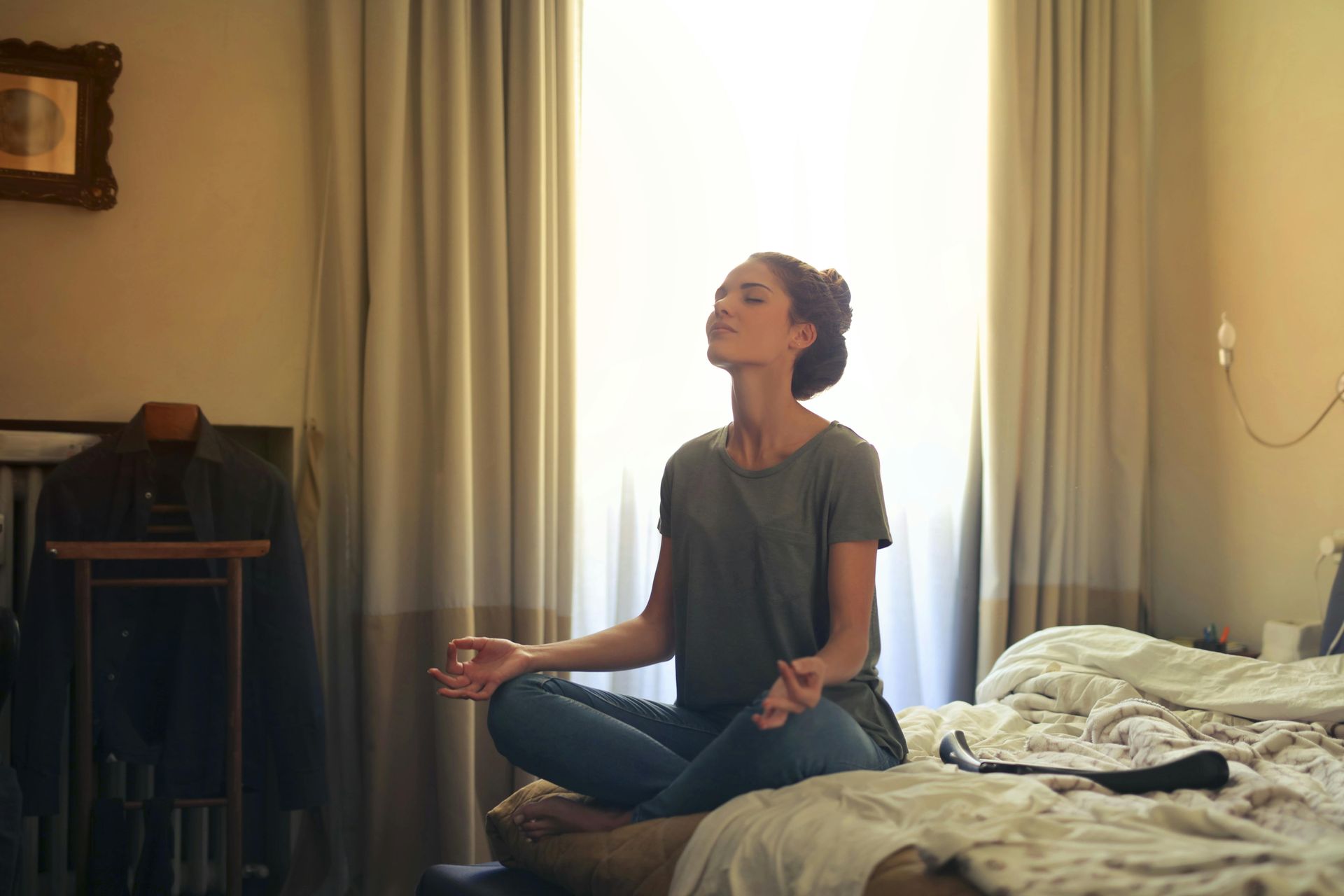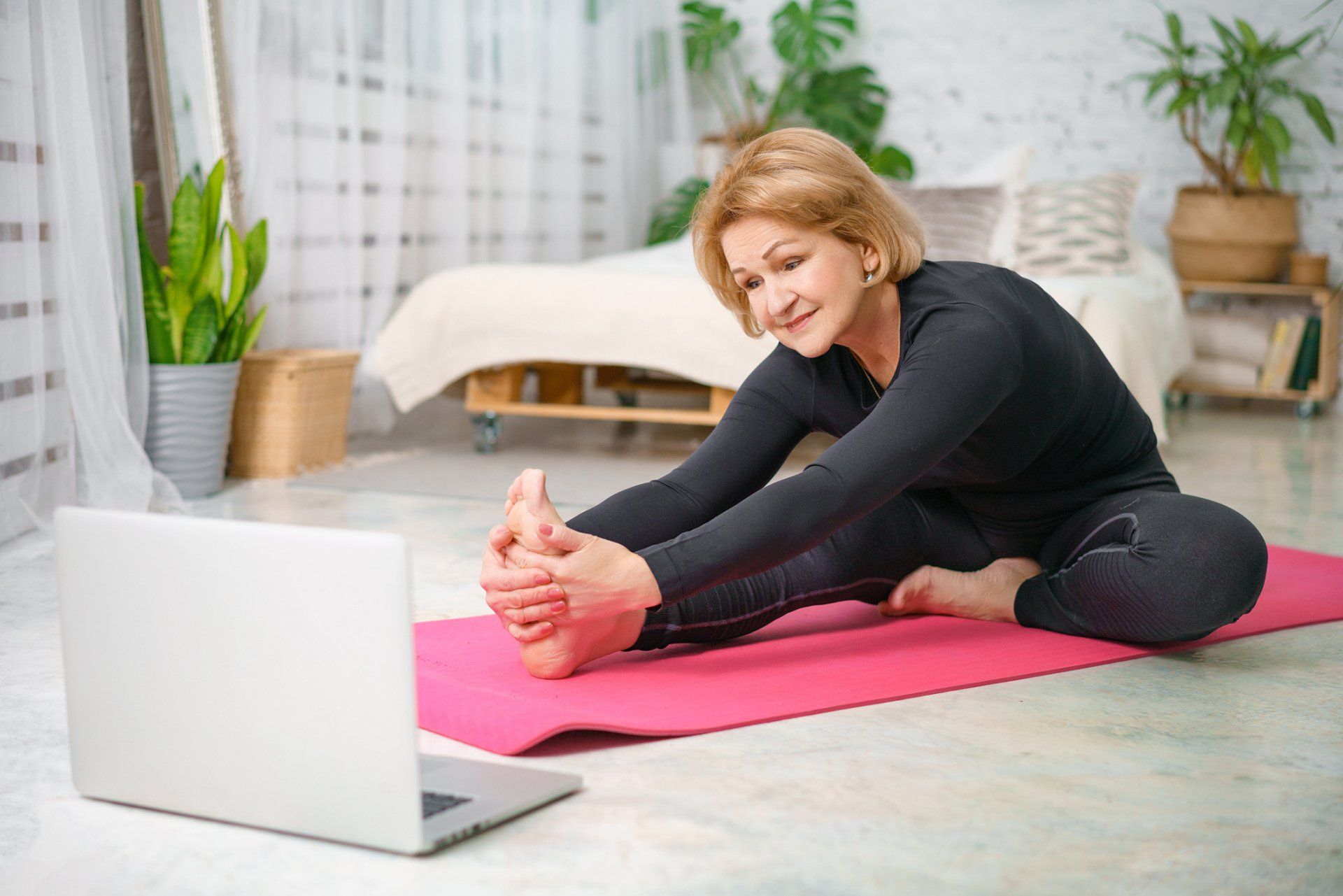Group Exercise through Menopause
The Role of Group Exercise in Supporting Women Through Menopause

Navigating the changes that come with menopause can be a challenging journey for many
women. From hot flashes to mood swings, this phase brings a host of physical and emotional
shifts. However, there's a beacon of hope amidst these challenges: group exercise. In this blog
post, we'll delve into the role of group exercise in supporting women through menopause. By
exploring the physical and mental benefits of working out in a group setting, we'll uncover how
exercise can be a powerful tool in managing menopausal symptoms and promoting overall well-
being. Join us as we embrace body positivity and discover the transformative impact of group
exercise on women's health during this significant life stage.
Understanding Menopause: More Than Just Symptoms
Understanding menopause goes beyond recognizing its physical symptoms. It encompasses a
multitude of changes that affect women both physically and emotionally. Alongside the
commonly known symptoms like hot flashes and night sweats, menopause brings about
hormonal fluctuations that can impact mood, sleep patterns, and cognitive function.
In addition, the transition into menopause can evoke feelings of uncertainty, loss, and even
excitement as women embark on a new phase of life. By acknowledging the holistic nature of
menopause, we can better support women through this transformative journey.
The Power of Group Support
The power of group support in menopause cannot be overstated. Being part of a supportive
community during this phase can make a world of difference for women. Group exercise classes
provide not only the opportunity for physical activity but also a sense of belonging and
camaraderie. When women join to exercise, they motivate and encourage each other, creating
a positive and uplifting environment. This solidarity fosters accountability, making it easier for
individuals to stay committed to their fitness goals.
At the same time, sharing experiences and challenges with others who are going through similar
changes can help normalize the menopausal experience and reduce feelings of isolation.
Whether it's a friendly smile, a word of encouragement, or a shared triumph, the support in
group exercise settings can make menopause more manageable and empowering for women.
Physical Benefits of Group Exercise During Menopause
Group exercise in supporting women through menopause offers many physical benefits that can
enhance overall well-being. Engaging in regular physical activity as part of a group can help
women manage various menopausal symptoms effectively. Here's how:
● Bone Health: Weight-bearing exercises such as walking, dancing, and resistance
training help strengthen bones, reducing the risk of osteoporosis and fractures.
● Cardiovascular Health: Aerobic exercises like cycling, swimming, and group fitness
classes improve heart health, lowering the risk of heart disease and stroke.
● Weight Management: Regular exercise and a balanced diet can help women maintain
a healthy weight during menopause, reducing the risk of obesity-related complications.
● Joint Health: Stretching exercises and low-impact activities like yoga and Pilates can
improve flexibility and joint mobility, easing discomfort associated with menopausal joint
changes.
● Muscle Strength: Resistance training exercises target major muscle groups, helping to
build and maintain muscle mass, which tends to decline with age and hormonal
changes.
● Energy Levels: Regular physical activity boosts energy levels and reduces fatigue,
enabling women to better cope with the energy fluctuations often experienced during
menopause.
Group Exercise in Supporting Women Through Menopause: A Mental Health Perspective
Looking at group exercise from a mental health perspective during menopause reveals its
profound impact on overall well-being. Engaging in physical activity with others can significantly
improve mood and reduce symptoms of anxiety and depression. When women exercise
together, they experience a sense of connection and camaraderie, which can combat feelings of
isolation and loneliness often associated with menopause.
Additionally, the supportive environment of a group exercise setting provides a platform for
sharing experiences and coping strategies, fostering emotional resilience and empowerment.
Also, the release of endorphins during exercise is a natural mood booster, promoting feelings of
happiness and relaxation that can counteract the mood swings and emotional volatility often
experienced during menopause. By participating in group exercise sessions, women prioritize
their physical health and nurture their mental well-being, equipping themselves with the tools to
navigate the emotional ups and downs of menopause with greater ease and positivity.
Choosing the Right Group Exercise for You
When choosing the right group exercise for you during menopause, there are several factors to
consider. For instance, think about your interests and fitness level. Whether you enjoy dancing,
cycling, or yoga, there's a group exercise class that you can join. Then, consider your schedule
and location. If you live in NJ, you can access a wealth of fitness opportunities. You can explore
local gyms, community centers, or outdoor parks. In addition, using an NJ guide for fitness buffs
can provide valuable information on fitness studios and classes in your area. For instance, you
might find dance fitness classes in Jersey City, cycling groups in Newark, or yoga sessions in
Princeton. By researching and trying out different options, you can find the perfect group
exercise that suits your preferences and lifestyle, helping you stay active and healthy during
menopause.
Making Group Exercise a Habit
Making group exercise a habit for you during menopause requires dedication and consistency.
Start by setting realistic goals and creating a manageable exercise schedule that fits your daily
routine. Whether attending a group fitness class three times a week or going for a walk with
friends every morning, find a routine that works for you. Also, hold yourself accountable by
tracking your progress and celebrating your achievements.
Starting small and gradually increasing your activity level is okay as you build strength and
endurance. Embrace the journey towards a healthier, happier you, and don't be afraid to try new
activities and explore different group exercise options. By making exercise a regular part of your
lifestyle, you'll reap the physical and mental benefits and embrace a new you during
menopause.
Embrace the Power of Group Exercise
Group exercise emerges as a vital ally in navigating the challenges of menopause. Women can
effectively manage symptoms and enhance their well-being by harnessing the physical and
mental benefits of working out in a supportive community. From boosting bone health to
fostering emotional resilience, group exercise empowers women to embrace this transformative
phase with strength and positivity. So, join the movement, prioritize your health, and discover
the transformative potential of group exercise in supporting women through menopause.
Meta: Discover the role of group exercise in supporting women through menopause. Embrace
the power of fitness for menopausal wellness!
KW: Group Exercise in Supporting Women Through Menopause















